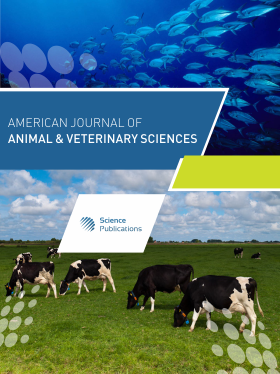Morphometric Differentiation of Indigenous Tswana Goat Populations in Botswana Using Canonical Discriminant Analysis
- 1 Department of Animal Science, Faculty of Natural and Agricultural Sciences, North-West University, Private Bag X2046, Mmabatho 2735, Mahikeng, South Africa
Abstract
Indigenous goats are renowned for their endurance and capacity to withstand extreme climatic conditions. To categorize indigenous animal genetic resources, morphometric measurements have been employed to analyze the properties of numerous farm animal populations and breeds. The purpose of this research was to use canonical discriminant analysis to categorize the diverse Tswana goat populations in Botswana based on their morphometric characteristics. A total of 1324 does were sampled from the five agroecological regions of Botswana. Only goats with Four Pairs of Permanent Incisors (4PPI = 48 months) were considered to minimize age effects. A hanging scale was used to measure body weight and other body parameters were measured using a fabric measuring tape. Data on morphometric traits were analyzed using the general linear model techniques of the statistical analysis system. The CANDISC algorithm was used to calculate Mahalanobis distances between class means, canonical variables, and eigenvalues. The largest Mahalanobis distance (8.79) was observed between the indigenous goat populations of Central and Ngamiland. The Southern and Gaborone goat populations had the smallest Mahalanobis distance (1.75). The analysis among the five agro-ecological regions identified CAN1 (93.4%) to be statistically significant (p<0.001). However, CAN1 and CAN2 together constituted 97.5% of all changes among the canonical variables, showing a thorough representation of most of the indigenous goats under the study. The morphological distance results confirm that the Ngamiland goat population was morphologically distinct from the other indigenous Tswana goat populations.
DOI: https://doi.org/10.3844/ajavsp.2023.184.189

- 1,971 Views
- 1,387 Downloads
- 0 Citations
Download
Keywords
- Tswana Goat
- Morphometric Traits
- Canonical Discriminant Analysis
- Mahalanobis
